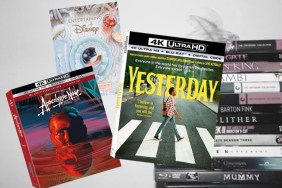In 1960, documentarian Robert Drew gathered together an invaluable team of editors, photographers, and other aspiring filmmakers – including such luminaries as Richard Leacock, D.A. Pennebaker, and Albert Maysles – with the deliberate intention of reinventing the documentary form. Drew felt that the old world of documentary filmmaking was stuffed and dull. For a format that purported the truth, it had become too stagey. As a response, Drew more or less invented the movement that we have come to call direct cinema, or, if you like, cinéma vérité.
Drew’s new approach was meant to infuse documentary film with truth. The rule seemed to be simple: Point a camera at what is in front of you, interfere less, and allow people to speak how they speak, and behave how they behave. Let life happen, essentially. Drew’s disciples went on to make some of the best documentary films ever made. To list a few: Don’t Look Back, Monterey Pop, Ziggy Stardust and the Spiders from Mars, Gimme Shelter, Grey Gardens, and When We Were Kings.
Also: Criterion and TCM Team Up for the Only Instant Streaming Service We Care About
Thanks to The Criterion Collection, the very beginning of Drew’s movement can now be seen in the form of a four-film collection called The Kennedy Films of Robert Drew & Associates. The set, on one disc, includes the short documentaries, made for American television, that Drew and his crew made before and throughout the Kennedy administration from 1960 to 1964, and more or less trace JFK’s presidency in microcosm.

Drew Associates
The first film, Primary, depicts, with very little narration and a watchful eye to down-home detail, the 1960 democratic primary race between future vice president Hubert Humphrey, and JFK himself. We see stump speeches, lame politician jokes from both camps, and are treated to repeated choruses of the two candidates’ campaign songs (a lost art to be sure). Humphrey’s was a re-purposed rendition of “The Ballad of Davy Crockett,” while JFK used a re-worded “High Hopes.” Although the film is presented without bias, we can clearly see Kennedy pulling handily ahead of Humphrey in these clips. While they are both gregarious, Kennedy seems more relaxed, hip, and in his element. His jokes are funnier, his passion clearer. He is the younger man. Humphrey seems, in contrast, like your dad. Not really sure how to tell a joke, and awkwardly ranting about his causes with a too-rehearsed conviction.
The second film, Adventures on the New Frontier, is a 1961 TV special that was actually commissioned by Kennedy himself shortly after he had won the presidency. Kennedy was a big fan of Primary, and wanted an equally honest film showing of what working as a president actually entailed. The details of politics, we learn, is a weird, frustrating, near Kafkaesque back-and-forth between what an underling might say in a moment of passion, and the weeks-long controversy that follows. Kennedy has several fresh issues he must deal with as soon as he takes office, and the intimate film taken from within the Oval Office depict the presidency as little more than a really complicated Joe job, replete with occasional petty miscommunication.

Drew Associates
Also: The 50 Greatest Political Films
Before he made another film about Kennedy, Robert Drew wanted to wait until there was something more salient to discuss from within the presidency: He wanted to wait until something historic would occur. He chance came in 1963, when he made Crisis: Behind a Presidential Commitment, a film about the infamous college integration controversy at the University of Alabama. The film sets up Kennedy as being the ultimate arbiter as to whether or not racial integration was to finally begin, openly and earnestly and legally, in the American South. Although JFK will give the final cathartic speech, declaring segregation to be an immoral act, the film largely centers of Bobby Kennedy and his wrangling of upstart right-wing Governor George Wallace.
The most revealing moments in Crisis focus less on the politics and more on the incidental lives of these powerful men. When they hang out at home, hug their children, and idly poke at their office bric-a-brac.
The final film on the set, Faces of November, made in 1964, at only 12 minutes, is the shortest of the lot, but is also the saddest and most affecting. Kennedy, as you might recall, was assassinated in November of 1963, which was a crushing blow for America and for every citizen who was alive at the time. Rather than comment on the murder, the details of the case, the uncertainty of the time, or even the legacy of the president, Drew elected to merely film, without any narration at all, the faces of the people who attended Kennedy’s funeral. We see, in immediate and horrifying intimacy, the utter despair and lachrymose shock of the populace. We see Jackie’s steel face as she tries to let the sadness stale.

Drew Associates
These films are fascinating from two standpoints: One the one hand, there is the clear historical significance which allows us to see Kennedy closer than we had ever seen any president before and allows us to ponder why the man became such an indelible icon in American politics. Drew’s cameras are the flies on the Oval Office wall, and this may be the first instance of a mass media truly capturing the idiosyncratic character of a politician in such detail. One the other hand – for lovers of cinema – we can see Drew’s striking, daring, revolutionary style at work. There is something oddly exhilarating about witnessing a deliberate jettisoning of all aesthetic effect, and allowing the ecstasy of film truth to come to light.
Kennedy also saw this truth coming to light, so there is even a deeper sociological dimension opening up: This may be the first time a presidency began to truly grasp that it needed to stay up on the way cinema functioned as a communication tool for the future. These films may have changed the way presidents purport themselves to the public.
Top Image: Drew Associates
Witney Seibold is a contributor to the CraveOnline Film Channel, and the co-host of The B-Movies Podcast and Canceled Too Soon. He also contributes to Legion of Leia and to Blumhouse. You can follow him on “The Twitter” at @WitneySeibold, where he is slowly losing his mind.





